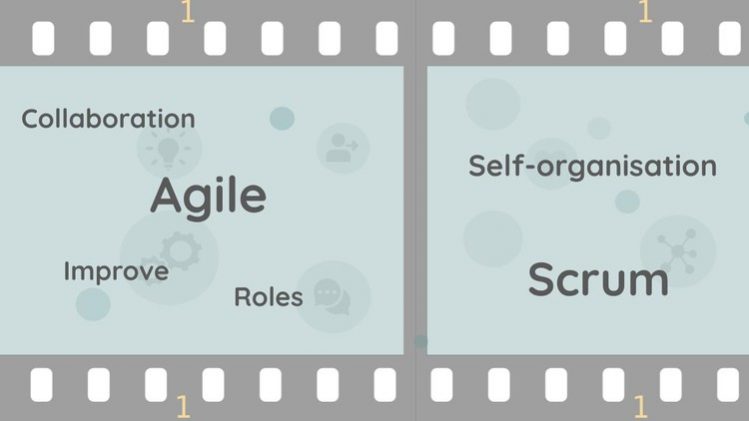
Understand Agile values and the difference between doing & being agile
Use common practices – in particular from the Scrum framework
Spot common pitfalls and ways to overcome them
Run activities with your team to help them on the journey
Retain the information longer – our brains are wired to absorb & remember stories longer
Set out on the right path, or course-correct, your agile journey
Are you about to embark on your agile journey? Or in the middle of one. Or perhaps, your company states you are already ‘fully agile’. Still, you may have this sinking feeling when the alarm clock goes off in the morning. Concepts such as sustainable pace, collaboration, and self-organisation are just not there. (Despite the motivational posters on the office walls.) You spend a lot of time getting stuck in the red tape. Or the opposite – Agile seems to be an excuse for chaos and poor planning.
Agile is often misunderstood. Many implementations are focused on doing agile, rather than being agile. Best intentions often end up in common pitfalls. Not only do you fail to reach your full potential or achieve actual change. Worst case – things become even more confusing and difficult.
This course helps you set out on the right path, or course correct, on your agile journey. It introduced the fundamentals and Scrum framework. But it also lets you identify and deal with common pitfalls.
What’s unique about this course is that it is taught as a story. Follow Adam through the agile implementation in the stock-standard medium-sized company where he works. Recognise and learn from their setbacks and triumphs.
The lessons are informal, bite-sized videos that will give you explanations and new ideas…
The course is divided into 4 sections:
- Beginning background – a check-in on why many organisations are looking for new ways of working.
- Let’s do agile – Introduction to the Scrum framework, taking you through roles, events, artefacts, user stories, relative sizing and agile planning/reporting.
- Implementation – Common, usually unsuccesful, shortcuts to agile implementations
- Let’s be agile – talking to the importance of understanding why and not just follow frameworks blindly.
It also includes free instructions and templates for you to help your team on their journey.
* * * * * * * * * * * * * * * * * * * * * * * * * * * * * * * * * * * * * * * * * *
Did you know that the story format is not just more entertaining? Our brains are wired to remember stories longer. They activate multiple senses and light up several areas in your brain.
Here is what a student going thru the previous version said:
‘The training is clear, well structured and presented in a fun way. I consider this training to be very useful and recommand this training, even to people that have some Agile knowledge.’
John Debbaut
* * * * * * * * * * * * * * * * * * * * * * * * * * * * * * * * * * * * * * * * * *
It is important to me that you get value out of this course, so use the 30-day-money-back guarantee if you did not feel that was the case. Also I would be grateful for any feedback on how you think it could become more useful.
Ready to give it a go? Click on the Enroll Now or Buy Now button in the top right corner of this page and start learning how to have collaborative and engaging meetings.
* * * * * * * * * * * * * * * * * * * * * * * * * * * * * * * * * * * * * * * * * *






